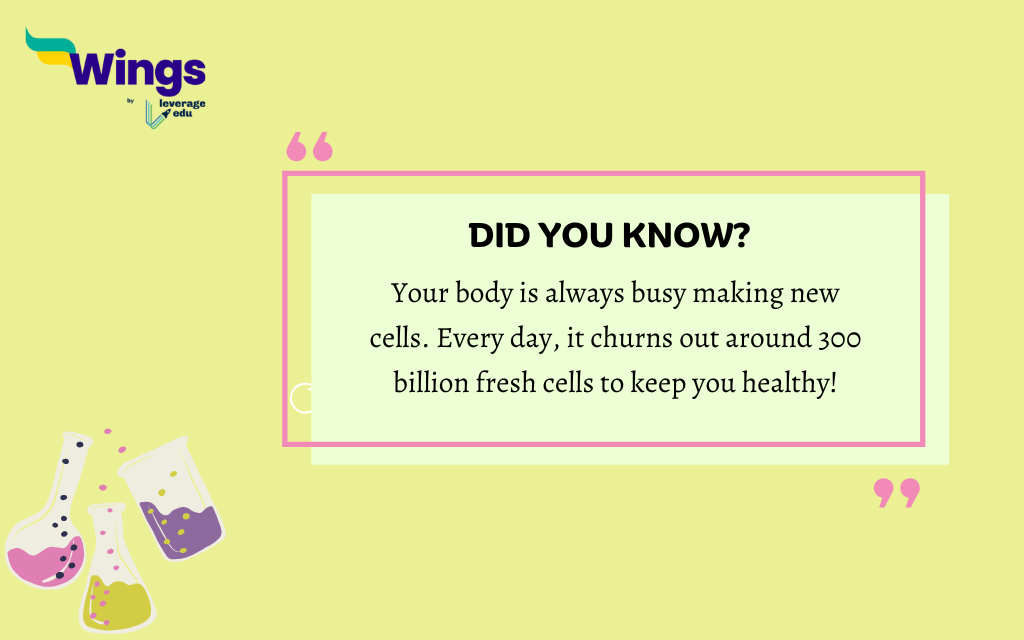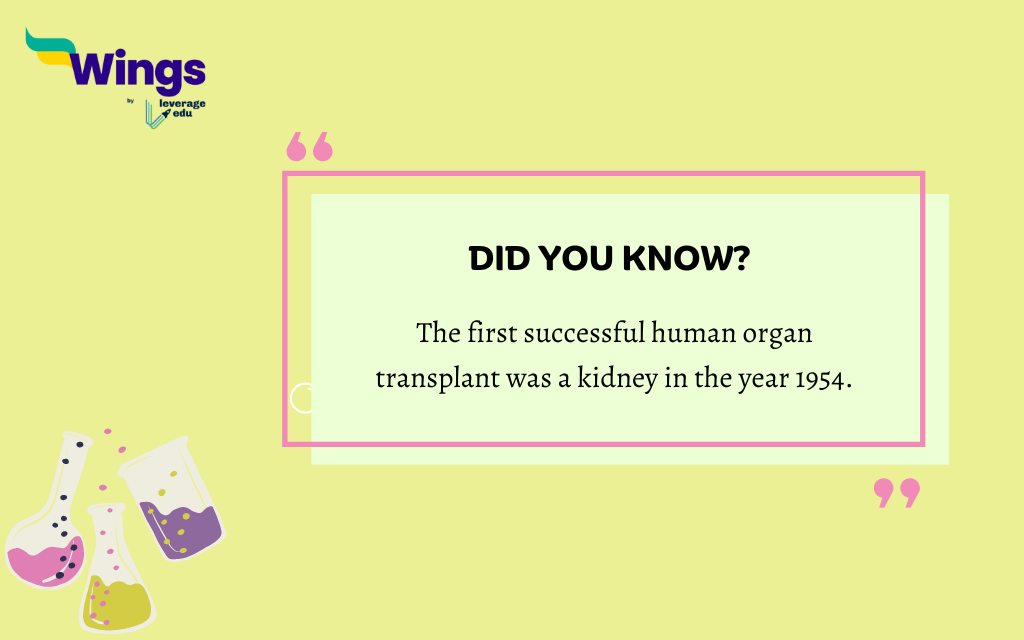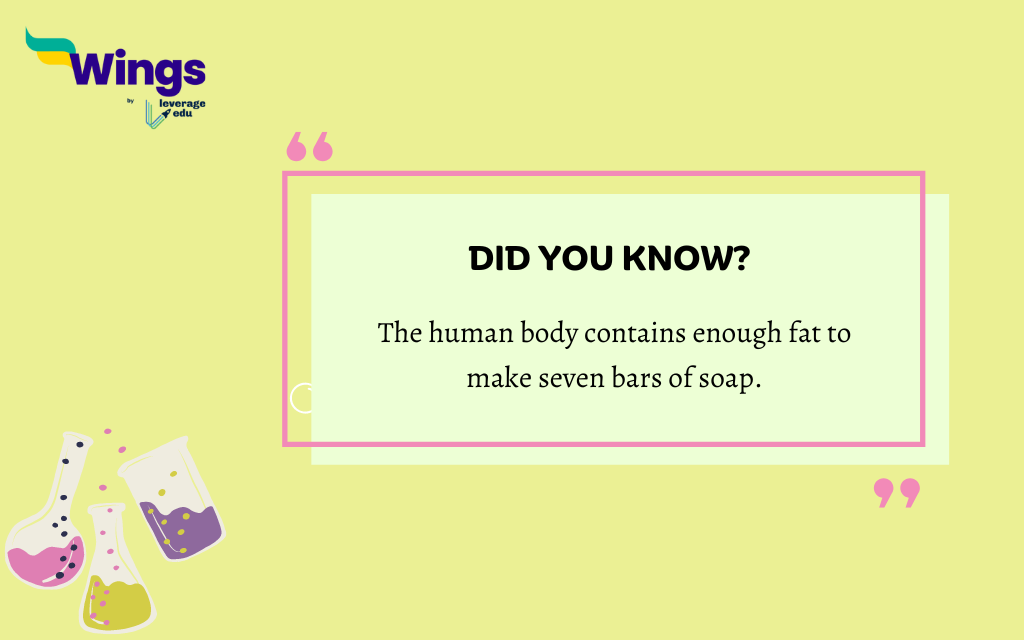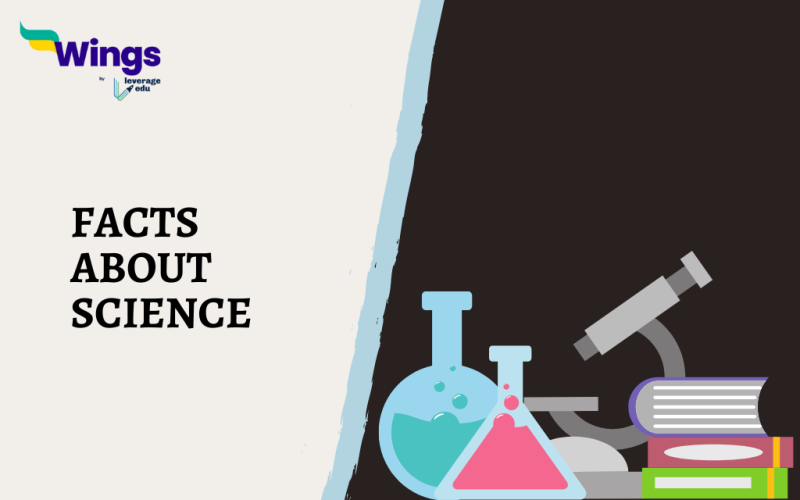Facts About Science– Science is the beating heart of our understanding of the world, constantly unveiling the mysteries of the universe. From the tiniest particles to the vastness of space, the discoveries made through scientific exploration are awe-inspiring. There is more to everything that we already know of. Get ready to dive into the fascinating world of science with these 50 interesting and amazing science facts that will blow your mind!
Table of Contents [show]
50 Interesting Facts about Science
Let us dive in and discover these 25 Interesting Facts about Science to spark your curiosity:
- Speed of Light: Light travels extremely fast! It zooms through at about 186,282 miles per second, which is around 299,792 kilometres per second.
- Soil is full of life.
- Human Brain’s Data Storage: Your brain is actually like a supercomputer! It can store tons of knowledge which is roughly equal to 2.5 million gigabytes or 2.5 petabytes of data.
- Earth’s Hot Core: Deep down inside our planet, it is as hot as the surface of the sun!
- Stretching DNA: If you could stretch out all the DNA in your body each of those tiny genetic building blocks would reach all the way to the moon and back. However, that would happen 6,000 times!
- Expanding Universe: The whole universe is getting bigger and bigger! It is expanding at a rate of about 45 miles per second per million light-years.
- Mars’ Giant Volcano: The biggest volcano we know of is not on Earth but on Mars! It is called Olympus Mons and it is huge!
- First Computer Virus: The sneaky first computer virus was created back in 1983 hence showing us how tricky computers can be actually.
- Helium is the gas which works against gravity.

- First Heart Transplant: In the year 1967, doctors successfully did the first heart transplant, thus revealing how amazing medical science can be.
- First Artificial Satellite: The very first man-made satellite is called Sputnik 1. It was launched into space by the Soviet Union in 1957, therefore marking it a big step in space exploration.
- Colours Seen by the Human Eye: Our eyes are like colour wizards! They can see up to 10 million different shades and colours.
- Huge Star UY Scuti: There is a star out there called UY Scuti that is incredibly massive and is over 1,700 times bigger than our Sun!
- First Vaccine Success: Back in the year 1796, a scientist named Edward Jenner made the first successful vaccine for smallpox which is a deadly disease.
- Protective Magnetic Field: Earth has its own force field! The magnetic field around our planet helps shield us from harmful radiation from the Sun.
- Speed of Sound: Sound travels at different speeds depending on the air, but on average, it zooms along at about 767 miles per hour or 343 meters per second.
- First Use of Anesthesia: Doctors first used anaesthesia in surgery in 1846, hence making surgeries much less painful for us.
- Vast Milky Way Galaxy: Our home galaxy which is the Milky Way, is humongous! It is estimated to have over 100 billion stars twinkling inside.

- Earth’s Unique Name: Among all the planets, Earth is the only one not named after a god or goddess. That is special in its very own way!
- First Test-Tube Baby: In 1978, the first baby conceived through in vitro fertilization (IVF) was born, thus opening new possibilities for families.
- First Atomic Bomb: The devastating atomic bomb was first detonated in 1945 and marked a turning point in modern history.
- Polio Vaccine Success: Jonas Salk developed the first effective polio vaccine in 1955 and saved countless lives from this crippling disease.
- Wright Brothers’ Flight: In 1903, the Wright brothers made history with the first successful powered flight hence paving the way for our modern air travel.
- First Open-Heart Surgery: Brave doctors performed the first successful open-heart surgery in the year 1893 and revolutionised heart treatments.
- Earth’s Slowing Rotation: The Earth spins a bit slower over time! Its rotation is gradually slowing down, but not to worry, it is happening very slowly.
- A cloud can as heavy as a million pounds.
- Due to their determination, cockroaches can survive up to a week.
- The ocean produces the majority of Earth’s oxygen.
- Earth’s magnetic field is used by animals to know their location.
- There is a possibility that Humans May Harbour Genes from Other Species.
- Without saliva, there is no taste in food.
- Ants are capable of carrying objects 50 times their own body weight.
- Male seahorses can give birth.
- Hippos create their own sunscreen.
- Peanut butter can be converted into diamonds.
- For half of the Earth’s animals, Rainforests are home.
- Astronauts can’t burp in space.
- Snails have thousands of teeth.
- Just once in a year North Pole evidence sunrise.
- Only female mosquitos can drink blood.
- Inside the moon, 1.3 million Earths can fit.
- Math is considered as the universal language.
- The bird which can fly upside down or backwards is Hummingbirds.
- A reptile which can squirt blood from its eye socket is Horned lizard.
- There are more bacteria in the human body than cells.
- Honey never gets spoiled.
- To orbit Earth International Space Station takes 92 minutes.
- A pint of sweat can be produced by feet in a day.
- The human genome contains approximately 3 billion base pairs.
- The speed of light in a vacuum is approximately 299,792,458 meters per second.
Did you know? The Arctic region of Norway asks EU Commission for a 26-hour day!
50 Amazing Facts about Science
Now get ready to explore these 25 Amazing Facts about Science:
- Just a teaspoon of a neutron star would weigh about 6 billion tons.
Imagine a small spoonful of material from a neutron star which is a very dense star. It would weigh as much as 6 billion cars!
- The first photograph of a human was taken in the year 1838.
- Our galaxy, the Milky Way, contains hundreds of billions of stars.
This was when someone took the very first picture of a person using a camera way back in 1838!
- Our Earth’s atmosphere has 78% nitrogen, 21% oxygen, and trace amounts of other different gases.
The air we breathe is mostly nitrogen and oxygen, with just a bit of other stuff mixed in.
- The average person walks the equivalent of 3 times around the world in a lifetime.
Over your whole life, you walk about as far as going around the Earth three times!
- The world’s largest desert is Antarctica.
- Babies have more bones than adults.
Even though we think of deserts as hot and sandy or immediately think of the Sahara desert, Antarctica which is covered in ice is the biggest desert on our planet!

- Our Earth’s oceans contain about 97% of the planet’s water.
Almost all of the water on Earth is in our oceans and our oceans cover most of our planet.
- The human body contains enough iron to make a 3-inch nail.
You have enough iron in your body to make a small nail, like the kind used to hang a beautiful picture!
- The world’s largest flower, the Rafflesia arnoldii, can grow up to 3 feet in diameter.
The biggest flower in the world which is the Rafflesia arnoldii, can be as big as three feet across!
- The Earth’s atmosphere exerts an average pressure of 14.7 pounds per square inch at sea level.
The air around us presses on everything with a force of about 14.7 pounds for every square inch.
- The human body contains enough sulfur to kill all fleas on an average dog.
There is enough sulfur in your body to get rid of all the fleas on your dog!
- HERE The Earth’s gravity isn’t uniform due to its bumpy surface.
Because the Earth isn’t perfectly smooth, gravity is stronger in some places and weaker in others.
- The Earth might have frozen several times throughout its history.
There have been times in the past when Earth was covered in ice, like a giant snowball!
- The human body contains enough carbon to make 900 pencils.
You’ve got enough carbon in you to make almost a thousand pencils!
- The first successful human-to-human heart transplant was in 1968.
In 1968, doctors successfully gave one person a new heart from another person.
- The Earth’s atmosphere is divided into five layers.
- Bananas are radioactive.
Our atmosphere is like a stack of blankets, with different layers that have different temperatures and characteristics.

- Animals use the Earth’s magnetic field for orientation.
Some animals, like birds and turtles, use the Earth’s magnetic field like a compass to find their way around.
- A cloud might weigh about a million pounds.
Those fluffy clouds in the sky might look light, but they can weigh as much as a million pounds!
- Trees on Earth are more in number than stars in the galaxy.
There are more trees on Earth than there are stars in the whole Milky Way galaxy!
- Days are getting longer on Earth.
Over millions of years, the days on Earth have actually been getting longer!
- Earth’s gravity isn’t uniform due to its bumpy surface.
Because Earth isn’t perfectly round, gravity is a bit different depending on where you are.
- Helium can work against gravity when cooled to superfluid temperatures.
When you cool helium down a lot, it can do some really strange things, like flowing up instead of down!
- Humans have inherited genes from other species.
Our DNA, the blueprint for our bodies, contains bits and pieces that we’ve inherited from other species!
- It can rain diamonds on other planets like Neptune, Uranus, and Saturn.
- Your stomach can dissolve razor blades.
- There are more stars in the universe than the grains of sand on the Earth.
- At the same time, water can exist in three states.
- Sound travels 4 times faster in water than it does in air.
- Dogs have 10 vocal sounds and on the other hand, cats have 100.
- A moon is very cold at night and hot at day time.
- The human brain takes in 11 million individual pieces of information per second but is only aware of roughly around 40. Plants can recognize their close relatives and upon doing so, but don’t have memory.
- On Venus, it snows metal.
- The Earth travels through space at around 67,000 mph and spins at roughly 100 miles per hour.
- you can reach the moon in under six months If you drive your car @ 60 miles per hour straight up.
- he deepest part of the ocean, the Marina Trench, is 36,200 feet down.
- As compared to a kiss a handshake transfers more germs.
- Only 5 per cent of the matter in the universe can be seen by Humans.
- Oxygen, carbon, hydrogen, nitrogen, calcium, and phosphorus are the Six elements that account for 99 per cent of the mass of the human body.
- To travel from the core of the sun to its surface it takes 40,000 years.
- Water is essential for life due to its ability to dissolve substances, regulate temperature, and participate in many chemical reactions.
- This is the chemical process responsible for the browning and flavour development of food when it’s cooked at high temperatures.
- If you were to stretch out the DNA in a single cell, it would be long enough to reach the moon over 4,000 times!
- A single strand of human hair can support the weight of an apple.
- The human brain generates more electrical activity than a lightning bolt.
- Carbon is the building block of life due to its ability to form a wide variety of molecules.
- A single human cell contains more information than all the books in the world.
- The lifespan of a star can range from a few million years to billions of years.
- There are more bacteria in a human body than cells.
- Ants can lift objects 50 times their own body weight.
On some other planets, like Neptune and Uranus, it might rain diamonds because of the extreme conditions there!
FAQ
The human brain takes in 11 million pieces of information per second, but only consciously processes about 40. Your brain is constantly working hard, even when you’re resting!
Your body has trillions of tiny bacteria called microbes, most are helpful! Water can be a solid (ice), liquid (water), and gas (steam) – it’s a shape-shifter! Plants make their own food using sunlight, a process called photosynthesis. They’re like tiny chefs! Sound travels through air, but not in space, that’s why it’s silent there. The biggest ocean on Earth is the Pacific Ocean, it’s so big you could fit all the continents inside!
Galileo Galilei is often called the “Father of Science”. He revolutionized our understanding of the universe through his observations and experiments. His work laid the foundation for modern physics and astronomy.
Hope you had fun reading these 50 Amazing and Interesting Facts about Science. If you want to read more interesting facts, then I would recommend reading this interesting blog 20 Amazing Facts About Life You Did Not Know!
 One app for all your study abroad needs
One app for all your study abroad needs















 45,000+ students trusted us with their dreams. Take the first step today!
45,000+ students trusted us with their dreams. Take the first step today!
